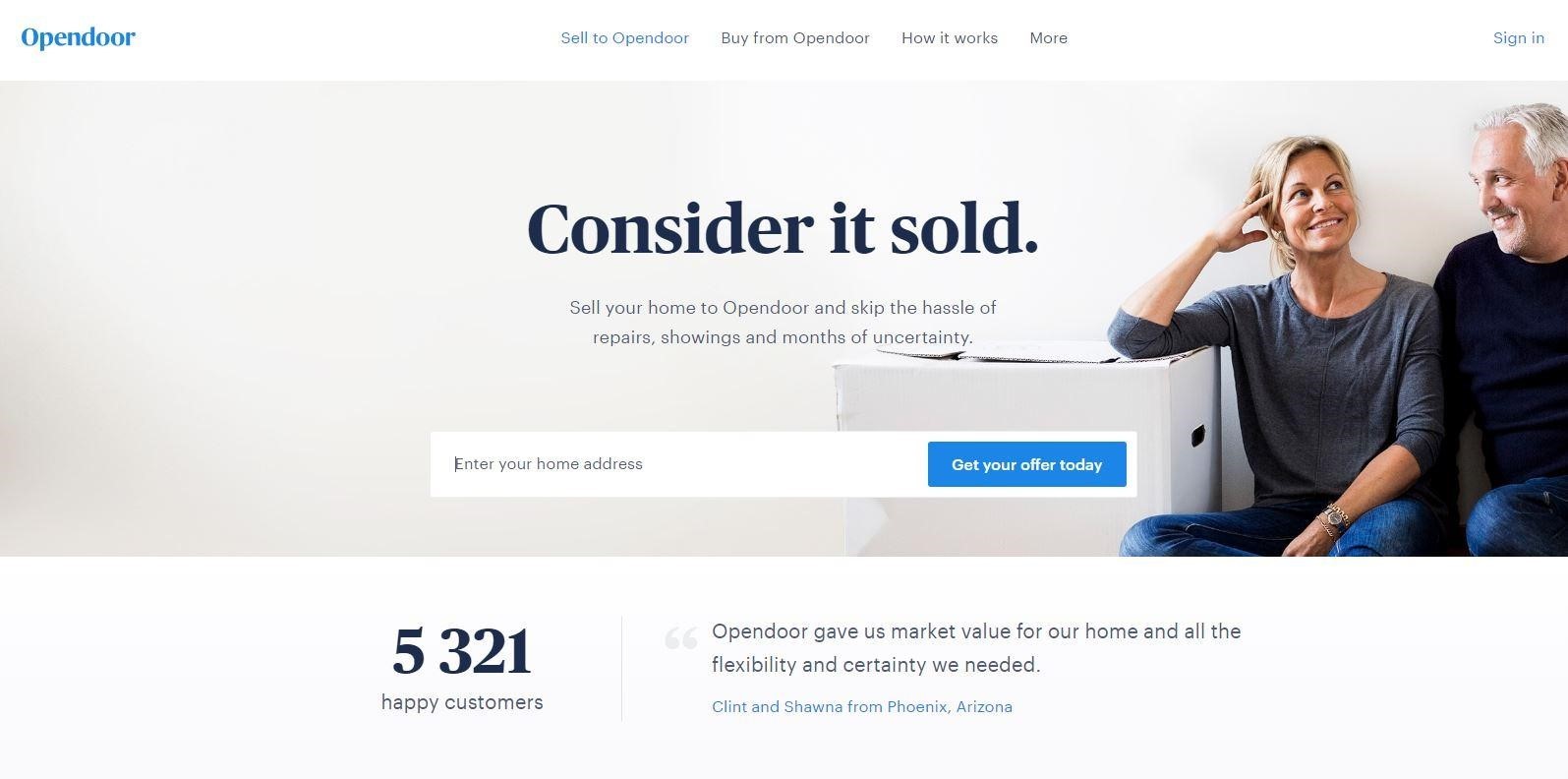Startup of the day, beginning (February 2017)

My name is Alexander Gorny, recently I have been engaged in the search and study of new startups for purchase or investment at Mail.Ru Group. In real transactions, we focus mainly on the Russian market, but in order to form our opinion on a local project, it is always nice to look for foreign counterparts. In addition, it is often very useful to simply look at growing stories from around the world: if you like it, then you can find something similar in our place, knowing what to look for. And at some point in my head there were so many interesting things that it seemed a crime not to share; So at the beginning of 2017, my blog # start-up day, which I lead on Facebook , ICQ and Telegram , arose .
Today I present to Habr a small digest of the most interesting projects of those that I described in February. Only five out of twenty-eight went through rigorous selection. For technical reasons, the release was delayed for almost a month, but it seems that there was no urgency, not a single start-up closed or pushed too much during this time. I reduced the descriptions a bit: the text turned out to be very long, there are a bit more details and comments on the blog, but here is only the most important.
1. Magento - the story of a successful opensource

Magento is a manufacturer of the same opensource software for an online store. Everything is written in PHP, lies on GitHub, everyone can download, put on their server, change design templates and launch their online store. It is clear that there are dozens, if not hundreds, of analogues on the market, but Magento, apparently, is objectively one of the best and most functional. At least, it is by far the most popular on a global scale: its software is used by every third online store of those working on standardized software and every sixth of the top-1000 American sellers, including, for example, Burger King.
The popularity of the product justifies the development of add-ons. The completeness of the plug-in store can be judged by about twenty extensions for accepting payments in bitcoins and five for generating XML for Yandex.Market. Through a separate paid ($ 500) plugin written by a third-party company, the opportunity to create your own mobile application is also implemented.
In terms of the business model, Magento did not invent anything new, but it uses all the obvious. It offers paid training and certificates, an Enterprise version with a couple of plugins enabled by default and support, as well as a cloud-based Magento deployed on its servers. There, probably, someday everything will pass. Support rates, by the way, start at $ 15,000 a year: Magento doesn't sell itself cheaply.
The history of the company, not the product, is complicated: it was bought by Ebay for $ 180 million a long time ago, and in 2015 it was sold to venture funds complete with several other B2B services. The new owners of Magento separated quite quickly, and now it is again an independent company, which again raises money for expansion. The last deal is $ 250 million, estimated at 450 million. In five years, Ebay will again be sold, but already for a couple of billion, probably.
2. Karhoo - the story of a solid facepalm

Karhoo is a British taxi ordering application that worked according to the model that Yandex.Taxi asks for taxi fleets: it did not affect prices, but provided the user with a choice. “Taxi A will arrive in 3 minutes and will cost £ 20, taxi B will arrive in 5 minutes for 18 pounds, and B in 7 minutes for 15 pounds, who are we calling?” It is clear what the plan was, on paper this approach has one plus:
- For taxi parks, this is not an application, but a dream, everyone is happy to connect, even if there are few orders: they receive at least some passengers and only strengthen their brand, no minuses.
- Since there are a lot of taxi parks - and there are a lot of cars on the line, that means they will come to the call quickly: this is what the passenger needs.
- You do not need to do anything offline, the taxi fleet is explicitly responsible for the transportation, it is absolutely transparent to the user, you can not fight for the quality of the service itself, but only deal with the application programming.
Everything is in the black. On paper. Under the paper, Karhoo received some crazy money, some write 250, some 300 million dollars of financing.
In reality, everything went wrong. Firstly, Uber was still cheaper. Secondly, user experience, and therefore loyalty. Extra clicks, guaranteed extra waiting (who won’t choose the cheapest one because of some extra minute), as a result, there was less magic, and more good old taxi. Thirdly, Uberpool. He already has one in London, but Karhoo didn’t even have it, and in theory it was harder to make.
The project worked for less than a year and closed, the money ran out, there was nothing to pay a salary. They didn’t seem to have time to get and eat their own, the financing went in tranches, and in reality they ate “only” 50 million when the tranches stopped. But this is also very, very, very much for one city and the lack of offline infrastructure.
Renault bought the remnants of its former luxury for $ 16 million. The system now does not work, there are no users left, that is, only software and the rest of the team were bought. It seems overrated again.
3. Zhihu - the story of a successful clone

Zhihu started as a Chinese Quora, a service of “type of smart” questions and answers, did not hide this at all and was not ashamed of its secondary nature. In 2010, Quora was fashionable and obviously successful: cool founders, cool investors, cool audience, interesting content.
And the Chinese have persuaded how not to persuade such a charm. Not pixel by pixel, but the difference in the projects was at the level of "before and after the redesign", nothing more. At first, everything was fine with those and others: people appeared, questions and answers began to be typed, SEO traffic flowed to the question base, the model was confirmed. And then everyone went their own way. The American project has been almost eight years old, consumed tens of millions - but, in fact, it hasn’t learned to earn money at least seriously, and in fact, it hasn’t come out on mobile phones.
Zhihu did both, for which he received the latest valuation of one billion dollars. The mobile application is probably better executed and certainly promoted much more aggressively than Quora. As a result, in a comparable audience with the English-speaking world in China, they are about ten times more popular than Americans on smartphones. Well, money, of course. Advertising and paid accounts appeared on the service for a long time, and in 2016 they invented Zhihu Live - in fact, paid webinars. A star or just an upgraded account answers the questions of the public for an hour, and ordinary people pay for the opportunity to listen to this or ask something. The commission, of course, goes to the service.
4. Augmedix - the history of the application of technology in everyday life

Imagine the usual appointment with a doctor of a "non-surgical" specialty - therapist, neurologist or allergist. In addition to his direct work, finding out the diagnosis and prescribing treatment, the doctor simultaneously types a bunch of text: after all, the entire substantive part of the conversation, all the information received from the patient, all appointments should eventually be in a computer system.
The founders of Augmedix decided that such a combination of duties is extremely inefficient, because an American doctor earns twenty times more than a good secretary with knowledge of English in Bangladesh, and this can be used.
Augmedix offers a cheap assistant from a faraway country who will save the doctor from a significant part of the routine. It is enough to put on Google Glass before the reception, and in the room there is an invisible typesetter who sees everything, hears and takes upon himself the communication with the computer. He writes everything that is pronounced into the information system, and all that the doctor needs to remember is pulled out of it and displayed on the screen.
The price of the service is about 2 thousand dollars per month per person: this is enough for a good salary in Bangladesh and an excellent margin. On the other hand, the doctor or clinic repeatedly recoup their costs by reducing the time for admission.
Augmedix has a huge market, it will be difficult for a competitor to appear, because coaching secretaries to understand medical language is non-trivial know-how, and Augmedix will surely go into it every day. In about five to ten years, AI will probably be able to do such a job, but Augmedix with a developed client base and accumulated Big Data will have every chance of being the first here. In general, it seems that the company is clearly moving towards great success. So far, for three years of her life, she has reached an estimate of $ 150 million.
5. Opendoor - the story of really big money

The American Opendoor and a couple of its competing clones are realizing a business idea that is charming in its impudence: they simply massively buy out houses for sale, so that later they can find it. A kind of stall “Buying up used phones” on Gorbushka, but not for smartphones with a red price of $ 200, but for a product a thousand times more expensive.
From the seller’s point of view, this is an ideal service: I went to the site, called out, received an offer in a day with the price calculated based on “a thousand signs and ingenious Big Data”, in a couple of days the inspector arrived to add deductions for failures not indicated in the application, a week later money already counted. No conversations with troubled agents, no months of waiting, no dozens of people who stomp around their beloved home, ask idiotic questions, and then never buy. Yes, of course, the price is obviously lower than with direct sale: Opendoor must get its margin, this is not hidden, but it’s convenient! Compared with the usual scheme, through regular bulletin boards, the seller loses 3 to 10% of the cost of the house, depending on the circumstances and how many agents were able to be excluded from the process.
Earning their interest, a startup is very risky. Even if you do not take into account possible errors in the assessment, even the macroeconomic risk is terrible: to eat all the possible profit of the service, there are enough sharp two-fold market drops every six years.
But in the USA no one believes in such perturbations, and crazy money is invested in the model. Opendoor itself spent $ 110 million on its current position — approximately 5,000 houses (50 million margins) were resold in three cities — and received another 210 million to expand the entire US geography (estimated more than a billion) and another 400 million loans for actually buying houses. The recently launched Offerpad started with 30 million for development and 230 million debt for houses - just for plans and presentation.
* * *
I hope it was interesting. See you in a couple of weeks with the March sequel - or on my personal blog, where notes are published every day.
